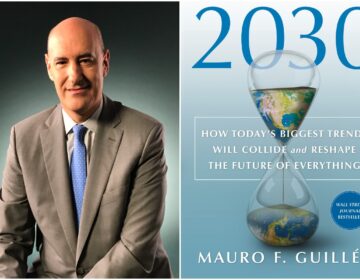An update on natural gas, fracking & the Marcellus Shale: Water
Listen

Hour 1
The natural gas industry drilling into the Marcellus Shale formation in Pennsylvania and neighboring states along the Appalachian mountains is at the forefront of many conversations in the state and the country today. With drilling supporter Pennsylvania Governor Tom Corbett calling for the commonwealth to become the “Texas of the Marcellus Shale boom” and a GOP legislature, the industry has political support in Harrisburg secured. However, at the same time, new questions continue to be raised about its impacts on the environment, especially water. Joining us to provide an update on those questions is ABRAHM LUSTGARTEN, whose investigative reporting into fracking and Marcellus Shale for the nonprofit ProPublica won last year’s Polk Award. The U.S. Environmental Protection Agency is embarking on a new review of the impacts of the industry, and a member of its Science Advisory Board on these questions is one of our local water and spill experts, Temple University’s MICHEL BOUFADEL, Professor and Chairman of Temple’s Department of Civil and Environmental Engineering and Director of Temple’s Center for Natural Resources Development and Protection. Also joining us is DAVID YOXTHEIMER, an Extension Associate with the Penn State Marcellus Center for Outreach and Research, who is investigating water and environmental issues related to Marcellus shale and doing public outreach for Penn State on these issues.
Listen:
[audio: 031511_100630.mp3]
WHYY is your source for fact-based, in-depth journalism and information. As a nonprofit organization, we rely on financial support from readers like you. Please give today.





